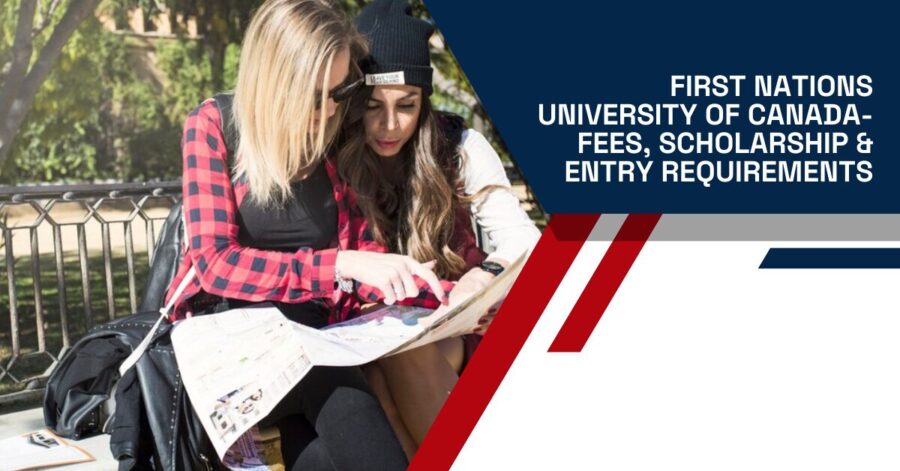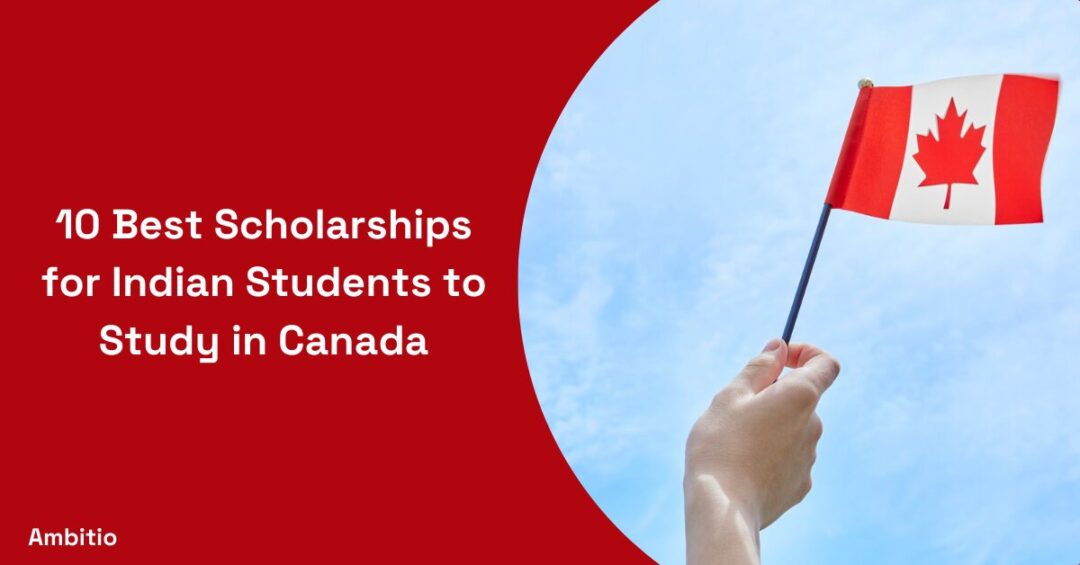1 September 2024
7 minutes read
First Nations University of Canada- Fees, Scholarship & Entry requirements

Key Takeaways
- FNUniv offers a distinct blend of Indigenous knowledge and modern academics, providing a culturally rich education experience.
- A variety of programs and scholarships are available, catering to a wide range of academic interests and financial needs.
- Graduates benefit from strong career prospects and financial aid options, ensuring support throughout their academic journey and beyond.
First Nations University of Canada, established in 1976 with nine students, is a unique institution dedicated to Indigenous education. It offers a rich blend of traditional knowledge and contemporary academics, addressing the needs of First Nations communities. FNUniv stands out among universities and colleges of Canada for its commitment to preserving and promoting Indigenous languages and values. Students can choose from different programs tailored to various academic interests and career goals, all designed to reflect cultural symbols and heritage.
With campuses in Regina, Saskatoon, and Prince Albert, FNUniv continues to be a beacon of cultural pride and academic excellence. Read the following blog to know more about the programs offered , admission requirements , scholarship , and campus life of First Nations University of Canada .
Popular programs offered at First Nations University of Canada
Here’s a detailed table of the academic programs offered at First Nations University in Canada, including tuition fees, duration, and eligibility:
| Degree Program | Course Duration | Eligibility | Annual Tuition Fees |
|---|---|---|---|
| Bachelor of Arts in Indigenous Studies | 4 years | High school diploma or equivalent | $15,000 CAD |
| Bachelor of Business Administration | 4 years | High school diploma, proficiency in English | $18,000 CAD |
| Bachelor of Education | 4 years | High school diploma, proficiency in English | $16,500 CAD |
| Bachelor of Science in Environmental Health and Science | 4 years | High school diploma, proficiency in English | $17,000 CAD |
| Certificate in Indigenous Languages | 1 year | High school diploma or equivalent | $12,000 CAD |
| Master of Indigenous Education | 2 years | Bachelor’s degree in a related field, proficiency in English | $20,000 CAD |
| Diploma in Indigenous Social Work | 2 years | High school diploma or equivalent | $14,000 CAD |
| Bachelor of Indigenous Fine Arts | 4 years | High school diploma, portfolio submission | $16,000 CAD |
| Bachelor of Indigenous Health Studies | 4 years | High school diploma, proficiency in English | $17,500 CAD |
| Certificate in First Nations Interdisciplinary Studies | 1 year | High school diploma or equivalent | $12,000 CAD |
First Nations University of Canada Admission Procedure
Applying to First Nations University of Canada is a straightforward process, but it’s important to understand the specific requirements and deadlines. Here’s a detailed guide to help you through the admission procedure, particularly for international students in Canada.
Entry Requirements
First Nations University of Canada welcomes international students and offers a variety of programs tailored to diverse interests. Here are the key entry requirements:
- Academic Requirements:
- Undergraduate Programs: High school diploma or equivalent with specific course prerequisites depending on the chosen program.
- Graduate Programs: Bachelor’s degree in a related field.
- English Language Proficiency:
- Supporting Documents:
- Official transcripts
- Copy of passport
- Statement of purpose
- Letters of recommendation
- Portfolio or audition (if required by the program)
Admission Procedure
The admission procedure to study in Canada at the First Nations University involves several steps, ensuring that all necessary information is collected for a comprehensive review. Here’s how the application process works:

- Application Submission:
- Apply Online: Complete the application form on the university’s official website.
- Document Submission:
- Upload all required documents, including transcripts, English proficiency test scores, and supporting documents.
- Application Fee:
- Pay the non-refundable application fee. The fee amount can vary based on the program and applicant’s nationality.
- Review Process:
- The admissions team will review your application and documents. This process may take a few weeks.
- Offer Letter:
- If your application is successful, you will receive an offer letter.
- Acceptance and Visa:
- Accept the offer and apply for a Canadian student visa.
Application Dates 2025
It’s crucial to keep track of application dates to ensure you don’t miss any deadlines. Here are the key dates for the academic year 2025:
| Semester | Application Deadline | Documents Deadline | Decision Notification |
|---|---|---|---|
| Fall | March 1 | March 15 | April 15 |
| Winter | October 1 | October 15 | November 15 |
| Spring/Summer | February 1 | February 15 | March 15 |
GPA & Standardized Test Score Requirements
Here’s a tabular representation of the GPA and standardized test score requirements to get into First Nations University of Canada:
| Program Level | Minimum GPA Requirement | IELTS Score Requirement | TOEFL Score Requirement | Additional Test Scores |
|---|---|---|---|---|
| Undergraduate Programs | 2.5 on a 4.0 GPA scale | 6.5 | 80 | SAT or ACT (optional for most programs) |
| Graduate Programs | 3.0 on a 4.0 GPA scale | 6.5 | 80 | GRE (if required by specific programs) |
Scholarship & Financial Aid Offered by First Nations University
First Nations University of Canada is committed to supporting its diverse student body, including international students, through various scholarships and financial aid options. These opportunities are designed to help students manage the cost of education and achieve their academic goals.
Scholarships
- International Student Scholarships
- Description: Merit-based scholarships awarded to outstanding international students across a range of programs.
- Eligibility: High academic achievement and demonstrated leadership skills.
- Award Amount: Varies based on academic performance and program of study.
- First Nations Students Scholarships
- Description: Scholarships specifically for students of First Nations heritage, including international First Nations students.
- Eligibility: Must be of First Nations heritage and enrolled in a full-time program.
- Award Amount: Varies; typically covers tuition and additional expenses.
- Board of Governors Scholarships
- Description: Scholarships awarded by the Board of Governors to recognize academic excellence and community involvement.
- Eligibility: High academic achievement and active participation in community service or leadership roles.
- Award Amount: Varies; substantial awards to cover tuition and fees.
Financial Aid Options
- Need-Based Grants
- Description: Financial aid provided to students demonstrating significant financial need.
- Eligibility: Based on financial need assessment.
- Award Amount: Varies depending on the level of need.
- Cultural Exchange Scholarships
- Description: Scholarships aimed at promoting cultural exchange and understanding among international students and First Nations students.
- Eligibility: Participation in cultural exchange programs and activities.
- Award Amount: Varies; often includes a stipend for living expenses.
- Graduate Assistantships
- Description: Opportunities for graduate students to work as teaching or research assistants.
- Eligibility: Enrolled in a graduate program with a strong academic record.
- Compensation: Tuition remission and a stipend for living expenses.
Job opportunities & Salaries
Here’s a detailed overview of the job opportunities available to students of First Nations University of Canada after completing their courses, including job titles, respective annual salaries, and top recruiters:
| Job Title | Annual Salary (CAD) | Recruiters |
|---|---|---|
| Indigenous Studies Researcher | $50,000 – $70,000 | Government of Canada, Indigenous Services Canada, Universities Canada |
| Business Analyst | $60,000 – $85,000 | Deloitte, RBC, BMO, TD Bank, KPMG |
| Elementary/Secondary School Teacher | $50,000 – $75,000 | Saskatchewan School Boards, Indigenous Schools, Teach For Canada |
| Environmental Health Officer | $55,000 – $80,000 | Health Canada, Environment and Climate Change Canada, Local Health Authorities |
| Community Development Officer | $50,000 – $70,000 | Indigenous Affairs Canada, Non-Profit Organizations, Municipal Governments |
| Social Worker | $50,000 – $75,000 | Child and Family Services, Local Government Agencies, Non-Profit Organizations |
| Health Educator | $55,000 – $75,000 | Public Health Units, Hospitals, Community Health Centers |
| Human Resources Specialist | $55,000 – $80,000 | Government Agencies, Private Sector Companies, Consulting Firms |
| Cultural Program Coordinator | $45,000 – $65,000 | Indigenous Cultural Centers, Museums, Arts Organizations |
| Policy Analyst | $60,000 – $85,000 | Government of Canada, Think Tanks, Policy Research Organizations |
Top Recruiters
Here are a few top companies recruiting the students of First Nations University of Canada.

- Government of Canada
- Indigenous Services Canada
- Universities Canada
- Deloitte
- RBC
- BMO
- TD Bank
- KPMG
- Saskatchewan School Boards
- Teach For Canada
- Health Canada
- Environment and Climate Change Canada
- Local Health Authorities
- Indigenous Affairs Canada
- Child and Family Services
Fnuniv Campus Life
Campus life at First Nations University of Canada is vibrant and enriching, spread across three campuses located in Regina, Saskatoon, and Prince Albert. As one of Canada’s unique institutions dedicated to Indigenous education, FNUniv offers a supportive and inclusive environment for students from all backgrounds, including international and study abroad students.
Students benefit from a community-based approach to education, emphasizing the traditions and knowledge of First Nations peoples. This connectedness to the land and culture is a core part of the university experience, fostering a deep sense of belonging and identity among Indigenous peoples and their allies. The university provides a range of services and programs designed to support academic and personal growth. These include academic advising, mental health support, and cultural activities that celebrate the rich heritage of Indigenous peoples. Student associations play a crucial role in campus life, organizing events and providing a platform for student voices.
FNUniv is recognized by the Canadian Association of University Teachers for its commitment to high-quality education and research. Also, it is considered one of the best Canadian Universities among Indian students. Overall, campus life at FNUniv is characterized by a strong sense of community, cultural pride, and academic excellence, making it an ideal place for personal and professional growth.
Why Study in Canada ?
Here are the possible reasons why should you choose Canada for studies as an international student.
- High-Quality Education: Canada is known for its world-class universities and colleges, offering diverse and comprehensive programs.
- Cultural Diversity: Experience a multicultural environment with a welcoming attitude towards international students.
- Affordable Tuition: Compared to other popular study destinations, Canada offers relatively affordable tuition fees and living costs.
- Work Opportunities: International students can work part-time during their studies and full-time during breaks, with post-graduation work permits available.
- Safe and Peaceful: Canada is ranked among the safest countries in the world, ensuring a secure environment for students.
- Immigration Pathways: Graduates have various pathways to obtain permanent residency in Canada.
Conclusion
First Nations University of Canada offers a unique blend of traditional knowledge and modern academics, making it a great choice for students seeking a diverse and inclusive educational experience. With a variety of programs, strong support for international students, and excellent placement opportunities, FNUC is a place where you can truly thrive. So, if you’re considering studying in Canada, FNUC might just be the perfect fit for you!
Elevate your study experience by choosing Canada’s top institutions with Ambitio’s assistance. Our platform provides insights into Canada’s leading universities, tailored advice on your application, and strategies to enhance your chances of admission.
FAQs
What programs are offered at FNUniv?
FNUniv offers a variety of programs designed to integrate Indigenous perspectives, including Indigenous public work, Environmental Studies, Indigenous Education, and Fine Arts. These programs are tailored to provide both theoretical knowledge and practical skills relevant to First Nations communities.
How can students apply for scholarships at FNUniv?
Students can apply for scholarships through the FNUniv’s financial aid office. The university offers numerous scholarships and bursaries specifically aimed at supporting First Nations students and reducing the financial barriers to higher education.
What are the entry requirements for FNUniv?
Entry requirements at FNUniv typically include a high school diploma or equivalent. Specific programs may have additional requirements such as a portfolio for Fine Arts or a pre-public work year for the public work program. International students must also meet English language proficiency standards.
Where are FNUniv’s campuses located?
FNUniv has three campuses located in Saskatchewan, Canada: one in Regina, one in Saskatoon, and one in Prince Albert. Each campus offers different programs and facilities, tailored to the needs and interests of the student population.
How does FNUniv support First Nations cultures and education?
FNUniv is committed to promoting Indigenous knowledge and perspectives within its curriculum and campus culture. This includes offering community-based programs, supporting Indigenous languages and cultural practices, and providing a learning environment that respects and honors First Nations traditions and values.
What makes the First Nations University of Canada unique?
FNUniv is unique for its commitment to Indigenous education, offering programs that blend traditional Indigenous knowledge with contemporary academic studies. It is dedicated to preserving Indigenous languages and culture, making it a leading institution for students interested in Indigenous issues and education.

You can study at top universities worldwide!
Get expert tips and tricks to get into top universities with a free expert session.
Book Your Free 30-Minute Session Now! Book a call now




























